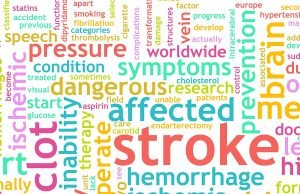
Caregivers in Stockton CA: Strokes and your Aging Parent
Strokes are one of the main causes of disability among seniors. Most strokes are called ischemic strokes and are due to a blocked artery. A doctor’s immediate task is to restore blood flow to the brain. There is a clot-busting drug that, if given within three hours of the first signs of a stroke, can make a huge difference both in survival and recovery. For this reason, it’s important that you, as their family caregiver, know the signs of a stroke in order to get immediate medical attention and give your parent the best chance at a full recovery.
The Signs of a Stroke
The American Stroke Association has come up with an acronym to help people remember the signs of a stroke. The acronym is F-A-S-T.
- F stands for Face Dropping. Ask your parent to try and smile, if you see only one side of their mouth raise up into a grin, that is a sign of face drooping. They may also complain that one side of their face feels numb.
- A stands for Arm Weakness. The first sign of this may be your parent complaining that their arm feels weak or numb. Ask them to raise both arms. If one of their arms drifts down, this is a confirmative sign of arm weakness.
- S stands for Speech Difficulty. Your parent may be unable to speak or their words may be coming out slurred or difficult to understand. Ask them to repeat a simple sentence to test for this.
- T stands for Time to Call 9-1-1. Every second counts when it comes to treating a stroke. Do not drive your parent to the hospital. The emergency medical response team can perform life-saving treatment in those critical minutes that they are driving your parent to the nearest emergency department. Note the time that the first symptoms appeared as the first responders will need this information.
Your parent may have one or all of these symptoms. Don’t hesitate. Even if the symptoms come and go, they may have had a transient ischemic attack (TIA) which can be a precursor to a stroke. Other symptoms that may be apparent include: trouble seeing out of one or both eyes, a sudden loss of balance, trouble walking or complaining of dizziness, and a severe headache or sudden confusion. As a family caregiver, knowing how to care for your parent in critical moments such as this and not hesitating should the time arrive is one of your most important roles. Consider taking a class from your local Red Cross if you need a refresher in emergency responses.
If you or an aging loved one are considering hiring a professional caregiver in Stockton, CA, please contact the caring staff at ApexCare®. Proudly Serving Sacramento, Yolo, Placer & El Dorado Counties. Call Today 916-924-9111.
Resources
http://www.mayoclinic.org/diseases-conditions/stroke/diagnosis-treatment/treatment/txc-20117296
